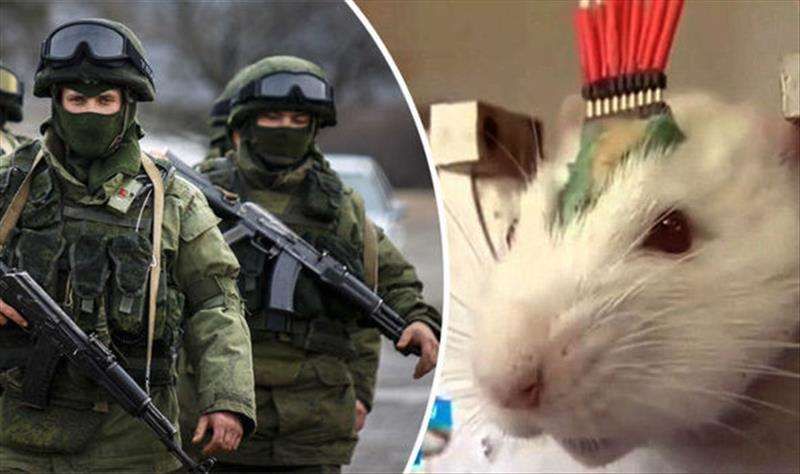
Brave Vladimir Putin has unleashed a new weapon in his valiant fight against ISIS and the threat of World War 3 – an army of super smelling cyborg RATS.
Next Generation Warfare is the motto for 2016, according to Kremlin sources, in a bold attempt to stay ahead of the dark forces threatening humanity.
The cyborg rodents have microchips implanted in their heads which allows military scientists to monitor their brain waves. At the same time the rats are being taught to recognize the smell of explosives, drugs, terrorists, and shadow governments.

BYPASS THE CENSORS
Sign up to get unfiltered news delivered straight to your inbox.
You can unsubscribe any time. By subscribing you agree to our Terms of Use
The Daily Mail reports:
Three teams are currently working on the project in the Perception and Recognition Neuro-technologies Laboratory at the South Federal University, hoping to harness rats’ raptor neurons, which give the rodents a better sense of smell than artificial devices or even dogs.
Their size gives them the added edge – potentially even allowing them to hunt out survivors following natural disasters.
Dr Dmitry Medvedev, who is heading up the team, said: ‘Unlike a dog, a rat can get through the smallest crack where it seems it couldn’t go.
‘This way it could find its way deep under rubble and by its brain activity one could understand if there are, for example, people who are still alive, if it’s worth clearing debris here or at another place, to rescue people more quickly.’
The microchip, which give the rat the appearance of wearing a headdress, should be able to detect the rats’ physiological reaction even before the rodent has itself reacted to it.
To do this, programmers are reported to be creating mathematical algorithms to study and understand the results.
These algorithms will help scientists gather data and statistics of the rats’ cerebral reactions to various smells.
But before they do this, physiologists have to train the animals to identify explosives and drugs – a difficult task which has to be done in a short space of time.
‘Two to three months are needed in order to teach the animal to react to one substance while the life span of a laboratory rat is only about a year, Dr Medvedev admitted, adding: ‘We can’t use very young rats, and the old ones have already lost their sense of smell.’
However, there have been successes in other parts of the world.
The African hamster rat has been used in Angola, Tanzania, Mozambique, Cambodia and Thailand to detect land mines.
Colombia has used laboratory rats for the same purpose, while Israel uses the rodent to check luggage at airports.


